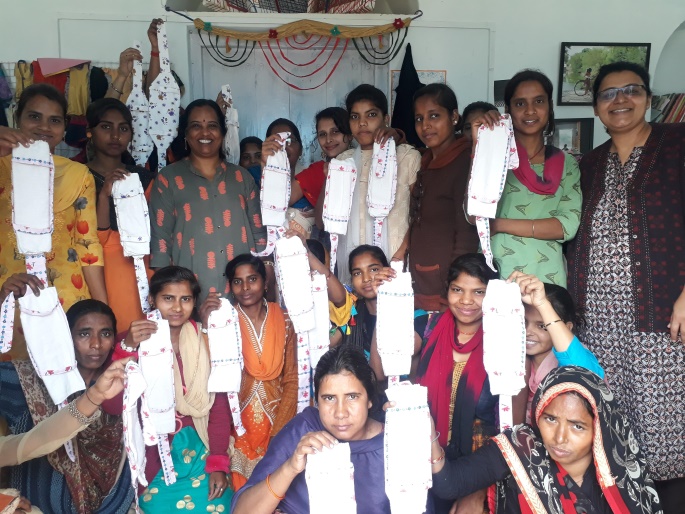
Menstruation is a biological process, a body expulsion exclusive to women. Management of this process of bleeding is a very crucial factor in a women’s life as she will experience around 400 periods in her life. However, menstrual options for women are few. In scenarios where resources are low, menstruation is poorly managed by the use of inappropriate absorbing materials. Studies point to incidences of reproductive tract infections owing to poor menstrual options, poor facilities, superstitions and beliefs. Studies point to 70% increase in reproductive related infection due to poor management during menstruation.
The issue of safe menstruation management has to be specially addressed in the context of poor communities with low resources. Women and girls must have healthy menstrual options along with the knowledge of menstrual hygiene.
With these challenges, a strong need is felt for awareness about menstruation and products used for its sustainable management. A three day Training of Trainers (TOT) was conducted on ‘Sustainable Menstrual Hygiene and Management’ for 50 women, 35 women health educators on menstrual health and hygiene and also a group of 15 women, were trained on cloth pad stitching at Smartpur Saidanpur Hub Centre in Barabanki, Uttar Pradesh from 22nd February to 24th February’20.
The overall aim of this training was to break silence around menstruation, include men in menstruation who are otherwise marginalized. Further, help women perceive and talk about and manage menstruation positively, connecting with their bodies. There were discussions on how to make healthy and informed choices that take care of health and environment to manage menstruation.
The training was led by Smriti Kedia, who works as an independent consultant and trainer on menstrual and reproductive health interventions. She has worked with various capacities with government and non-government institutions such as Tata Trusts, Development Solutions, IIT Madras, Ministry of Development of North East Region and others to design interventions strategies, conduct research, design curriculum and conduct training on the subject. She has worked with communities in more than 12 states of India and her focus is on promoting sustainable health practices among adolescents and also involves men in menstruation.
This training was also aimed to help a women’s group to earn a supplementary income for their families by stitching cloth pads. The major intention was combating the growing use of disposable products globally and to bring back respect to reuse.
Further Smriti provided information which will help the women participants to understand that how to market and sell their pads so that they should earn maximum profit and improve their livelihood. They were also explained the importance of diving themselves in different teams such as procurement, stitching, selling and packaging, branding and marketing team. The training concluded with the participants deciding a brand name for their pad which was “SMARTPAD”.









